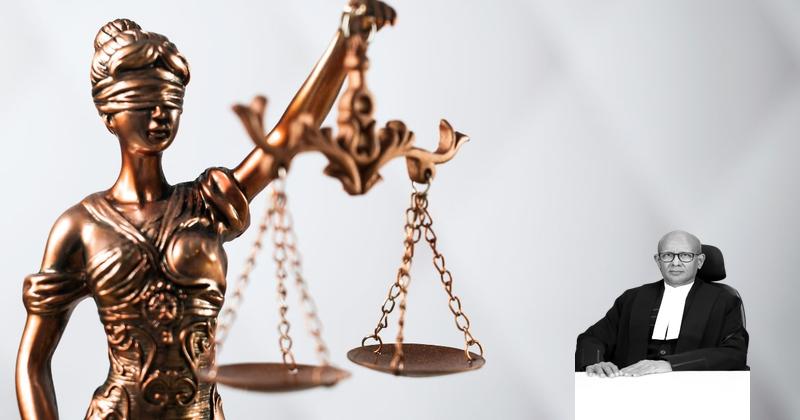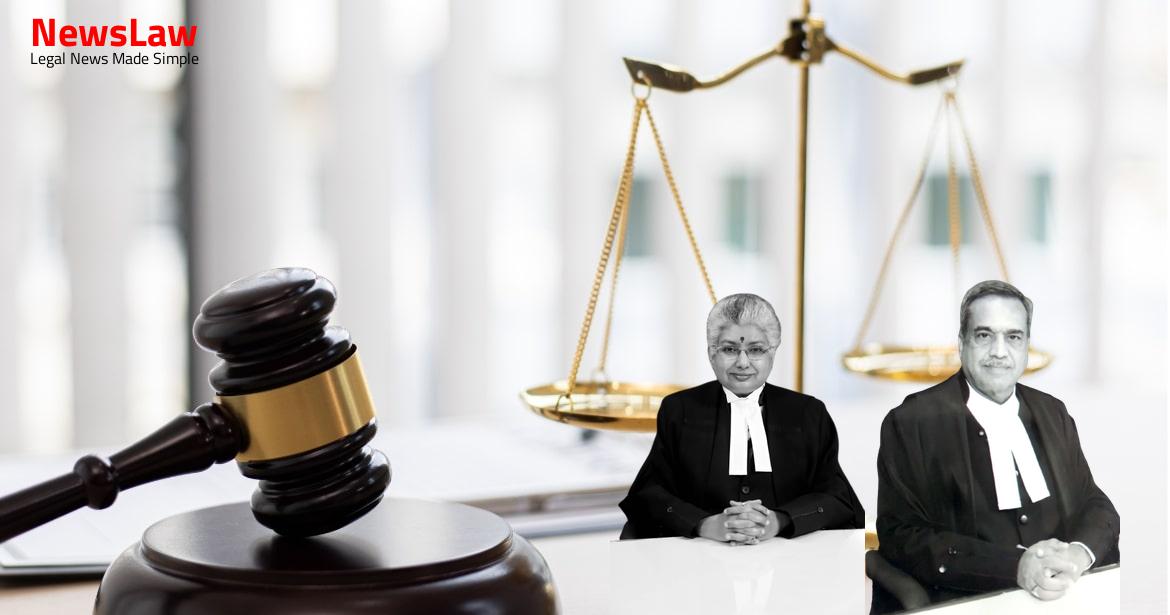An in-depth look at the court’s legal analysis of Article 224A, shedding light on the appointment of ad hoc judges in High Courts. Understanding the intricacies and implications of ad hoc judge appointments and the importance of prompt recommendations in tackling case backlogs.
Arguments
- Article 224A of the Indian Constitution allows for the appointment of ad hoc judges in High Courts to address the issue of vacancies and mounting arrears.
- The historical perspective of Article 224A shows that it was initially numbered as Article 200 in the Draft Constitution and discussed by the Constituent Assembly in 1949.
- Ad hoc judges were intended as an alternative to temporary or additional judges, not for indefinite appointments.
- The provision for ad hoc judges was borrowed from the UK’s Supreme Court of Judicature Act and similar laws in America.
- Dr. B.R. Ambedkar emphasized that the salary and benefits of ad hoc judges would be governed by pension rules.
- The proviso in Article 224A was inserted to avoid retired judges’ refusal to accept appointment being seen as misconduct.
Also Read: Electoral Malpractices in Mayor Election
Analysis
- The cases in a particular category are pending for over five years.
- More than 10% of the backlog of pending cases are over five years old.
- Article 224A has largely been a dormant provision with only three recorded instances of its invocation.
- A period of about three months should be sufficient to process a recommendation for appointment under Article 224A.
- The same monetary benefits and privileges should be payable/available to an ad-hoc judge as admissible to a judge minus the pension.
- Two scenarios of appointment of Judges arise under Article 217 of the Constitution of India.
- The appointment has to be by the President by warrant under his hand and seal.
- Recourse to Article 224A is not an alternative to regular appointments.
- Once the recommendation is made, opinions of State Governments are solicited as well as input from the Intelligence Bureau (IB).
- Delays in the recommendation process is a matter of concern, and the recommendation of the collegium should not remain pending for a long period of time.
- Appointment of retired judges as ad-hoc judges was seen as a part of a ‘multipronged attack’ on arrears and was strongly recommended.
- The tenure for which an ad hoc Judge is appointed may vary but generally should be between two to three years.
- The number of ad hoc Judges should generally be in the range of two to five in a High Court.
- The emoluments and allowances of an ad hoc Judge should be at par with a permanent Judge of that Court minus the pension.
- The Chief Justice should prepare a panel of Judges and former Judges for appointment under Article 224A.
- The consent of the retired judge is sought to sit and act as a judge of the High Court in the ad-hoc capacity.
- Article 224A allows the Chief Justice of a High Court to request a retired Judge to sit and act as a Judge of the High Court for that state.
- The retired Judge must have previously held the office of a Judge of that Court or any other High Court.
- The retired Judge, while sitting and acting, will have the jurisdiction, powers, and privileges of a Judge of that High Court.
- The retired Judge is entitled to allowances as determined by the President during this period.
- The retired Judge is not obligated to sit and act as a Judge of that High Court unless they consent to do so.
- The National Judicial Appointments Commission (NJAC) introduced through a constitutional amendment was struck down in the Supreme Court Advocates-on-Record Association & Anr. v. Union of India (NJAC case)
- An ad hoc judge appointed under Article 224-A of the Constitution is deemed to have the jurisdiction, powers, and privileges of a Judge of the High Court, but is not considered a Judge of the High Court for purposes other than those related to jurisdiction, powers, and privileges.
- In the case of Justice P Venugopal vs Union of India and Ors., it was determined that an ad hoc judge does not become a part of the High Court and is not entitled to further pensionary benefits after demitting the Constitutional office.
- Consent of a retired Judge is required for appointment as an ad hoc judge under Article 224-A, as per the ruling in Union of India vs Sankalchand Himatlal Sheth.
- Various opinions on ad hoc judge appointments and consent of retired Judges have been analyzed, including the case of Anna Mathew vs N. Kannadasan.
- The Chief Justices’ Conference in 2016 addressed the issue of filling up vacancies in High Courts and the need to consider appointments under Article 224-A to tackle arrears in cases.
- The Full Bench of the High Court of the Judicature at Allahabad provided an extensive interpretation of Article 224-A, stating that an ad hoc judge does not fall within Article 216 and is not a judge of the High Court.
- Rent-free accommodation or housing allowance should be provided to ad hoc Judges on the same terms as permanent Judges.
- There will be no additional burden on the State Government, as the expenses for ad hoc Judges would have been incurred for permanent Judges anyway.
- The existence of vacancies for ad hoc Judges actually results in savings for the State Government.
- All benefits admissible to permanent Judges should be given to ad hoc Judges.
- The guidelines for perks and allowances cannot be exhaustive at this stage.
Also Read: Balancing Power and Transparency: Electoral Bonds Struck Down, Disclosure Mandated
Decision
- The recommendation for appointment should be completed promptly
- If the recommendation is reiterated, appointment must be made as per legal requirements
- The Chief Minister, in consultation with the Governor, will forward the recommendation to the Union Minister of Law, Justice and Company Affairs
- Retiring/retired Judges are encouraged to offer their services for the benefit of the Judiciary
- Cooperation from all concerned parties is expected
- Any apprehensions should be set aside to move forward
- Efforts will be made to resolve any arising problems
Also Read: Recall of Resolution Plan Approval: Legal Analysis
Case Title: LOK PRAHARI THROUGH ITS GENERAL SECRETARY S.N.SHUKLA I.A.S. (RETD) Vs. UNION OF INDIA (2021 INSC 261)
Case Number: W.P.(C) No.-001236 / 2019



